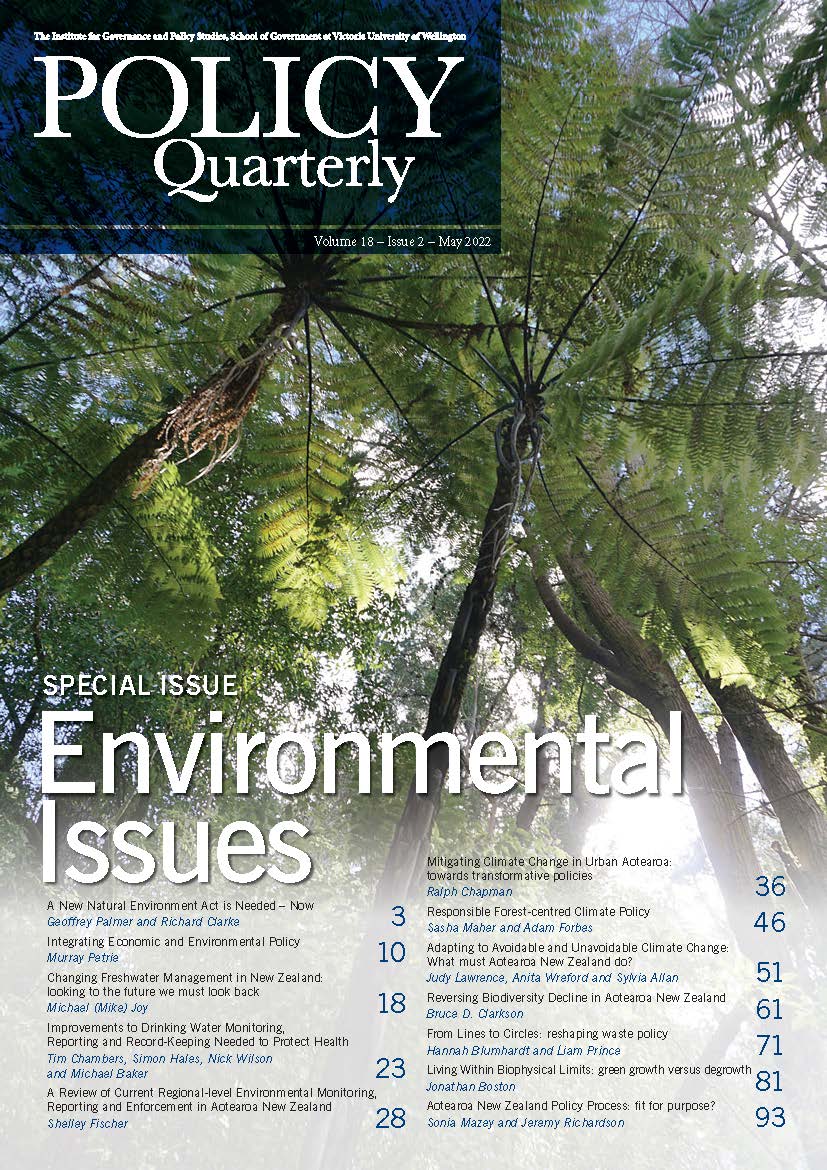Improvements to Drinking Water
Monitoring, Reporting and Record-keeping Needed to Protect Health
DOI:
https://doi.org/10.26686/pq.v18i2.7571Keywords:
Taumata Arowai, Three waters, Public health, Drinking water, NitrateAbstract
Taumata Arowai, the new independent water services regulator, recently consulted publicly on the drinking water rules for water suppliers. We use a case study on nitrate and official information requests to demonstrate the current weaknesses in the drinking water monitoring and reporting systems and why the reforms proposed by Taumata Arowai seem unlikely to substantively address many of these deficiencies. To ensure sufficient public health surveillance and robust epidemiological research into the potential health impacts of drinking water contaminants, Taumata Arowai should: 1) establish a national database for water supply and quality; 2) mandate the standardisation of reporting requirements across water suppliers; 3) increase the frequency and range of water quality testing; and 4) maintain a national map of water supplies. These upgrades are particularly important in an era of rapid land use changes and climate change.
Downloads
Downloads
Published
Issue
Section
License
Permission: In the interest of promoting debate and wider dissemination, the IGPS encourages use of all or part of the articles appearing in PQ, where there is no element of commercial gain. Appropriate acknowledgement of both author and source should be made in all cases. Please direct requests for permission to reprint articles from this publication to Policy-Quarterly@vuw.ac.nz.



